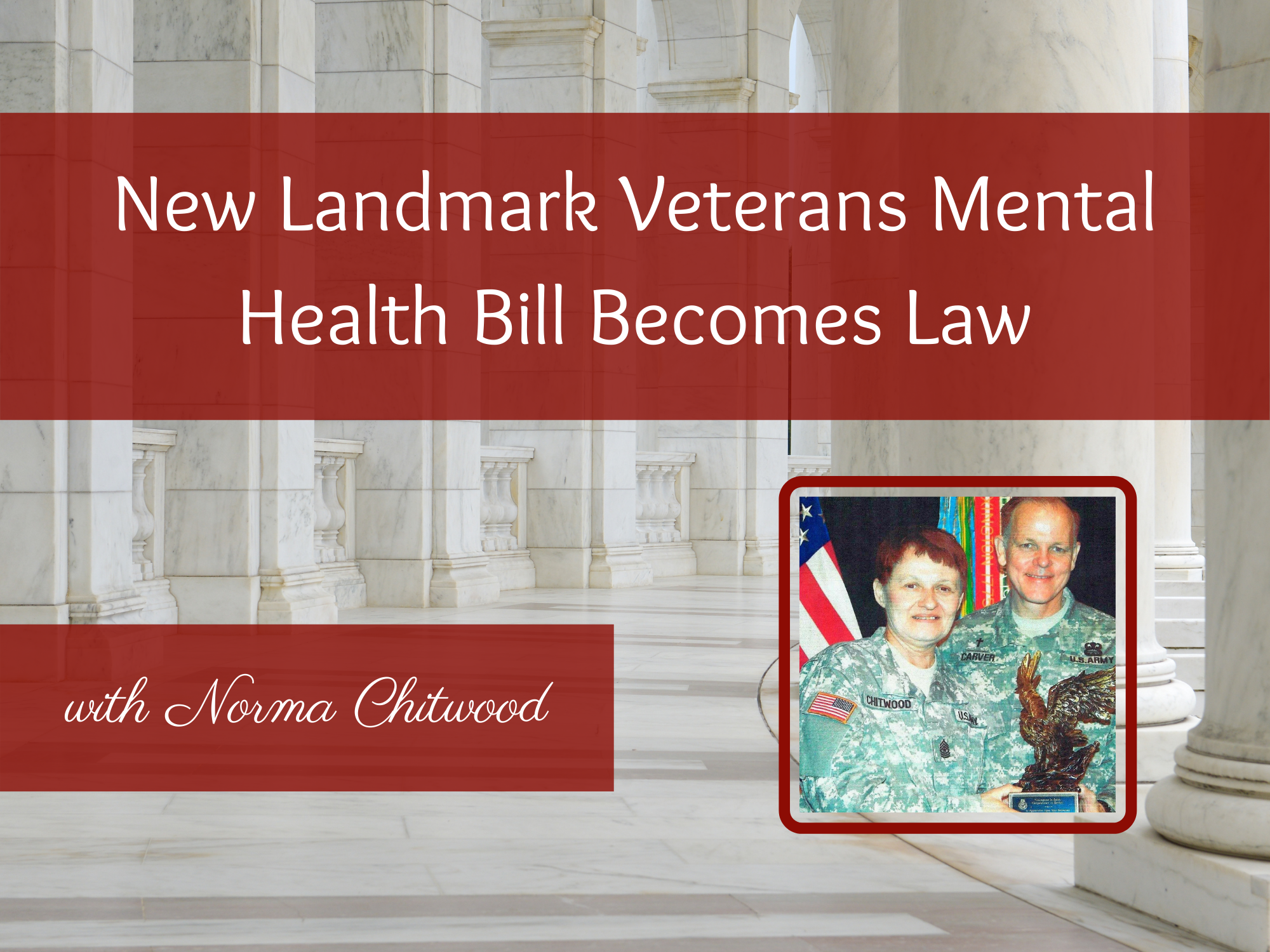Commander John Scott Hannon served 23 years in the United States Navy and grew to be a highly decorated soldier by the time of his retirement. He served multiple tours around the world with SEAL Team Five, and was eventually also a recognized SEAL Assistant Platoon Leader.
When he retired, he went home to his family in Montana, where he continued to be active in his community, especially with veterans like himself. He suffered many invisible wounds including Post-Traumatic Stress Disorder (PTSD), Traumatic Brain Injury, severe depression, and bipolar disorder. Commander Hannon was a passionate advocate for improving veteran access to mental health services, including the addition of more service animals.
Sadly, he died on February 25, 2018 from his invisible wounds. His legacy, however, did not.
A new bill that has just been signed into law will ensure Commander Hannon’s memory will not be forgotten anytime soon.
The Commander John Scott Hannon Veterans Mental Health Care Improvement Act of 2019 is a massive bill spanning 7 sections and 34 clauses, all aimed at improving access to mental healthcare for our veterans. You can read the entire text here.
To help understand the implications of such an important piece of legislation, we interviewed long-time therapist Norma Chitwood, who’s a Military OneSource Provider here at Kenosis Counseling Center.
Norma proudly served 34 years in the Army & Army Reserves before retiring in 2008. She has dedicated her career to helping veterans and their families work through the hardships and mental health challenges that deployments and military service frequently creates for individuals and families.
Because of the amount of information in the bill, we’ve split it up into 3 major implications that directly impact veteran mental health: Research, Accessibility, and Documentation. This isn’t to say that there aren’t other impacts as well – far from it. It’s merely meant to make the bill a little more digestible.

Research
One of the major implications of the bill is research. The law will require research on common existing treatments for trauma, as well as new possibilities such as animal therapy and meditation. Recalling that Commander Hannon was passionate about animal therapy, it’s perhaps not surprising that it will be a required research project for The Department of Veterans Affairs (VA).
The research will look into effectiveness of treatments as well as the cause and effect relationships they have with suicide and mortality rates amongst veterans. The VA will be required to make many improvements to their research processes, including bringing in qualified non-VA entities for quality assurance purposes.
For example, the VA will partner with the National Academies of Sciences, Engineering, and Medicine to study the “effects of opioids and benzodiazepine on all-cause mortality of veterans, including suicide.” (Title II, Section 204).
The law will require research on common existing treatments for trauma, as well as new possibilities such as animal therapy and meditation.
Opioids, drugs often used in pain management, are known to be addictive. You’ve probably even heard of the Opioid Crisis. Benzodiazepine, commonly known as “benzos” are commonly used to treat anxiety and sleep issues – medications such as Xanax and Valium. When used together, opioids and benzos are a recipe for disaster if not very carefully monitored.
Norma mentions that the bill’s focus on suicide prevention is “extremely important for today for the armed forces” because “since the late 90s, suicide has been an issue in the military.” She, like many others, questions the connection between opioids, benzos, and suicide among veterans.
Although there have been many tragedies with suicide within the veteran community, such as Commander Hannon’s death in 2018, there hasn’t seemed to be enough focus on effective prevention. “They need something more than what they have now,” says Norma. The bill stands to offer the research to figure out what the best “something more” might be.

Accessibility
The second overarching implication of the bill is to create more accessible mental health care for more veterans. According to Norma, “the VA needs to expand their services to other non-governmental facilities, called entities in the bill.”
There are a number of ways the law increases accessibility, including additional telehealth options, awarding grants to non-VA therapy locations for veteran telehealth care, and expanding services for women veterans. “After hours services availability is really important,” notes Norma.
Telehealth is a valuable resource for veterans who don’t live close to VetCenters or VA hospitals, especially in times of uncertainty like we’ve had in 2020. The expansion of these services is critical, and the bill provides assistance for those wanting to offer telehealth to veterans: “This section requires the VA to award grants to entities for the expansion of telehealth services to veterans.” (Title VII, Section 701).
Norma notes that Kenosis offers telehealth options, and she does as well, “We’re open to do that, and I’m open to do that with anyone out there.” She’s found that some patients even seem to prefer it.
There are a number of ways the law increases accessibility, including additional telehealth options, awarding grants to non-VA therapy locations for veteran telehealth care, and expanding services for women veterans.
The law will also create more benefit access for women veterans through a new website and texting capabilities. Women veterans often face different challenges than their male counterparts, so increasing knowledge about where they can find resources is critical. The VA will “publish a website providing information for women veterans about the benefits and services available to them,” as well as text messaging capabilities for the Women Veterans Call Center.
Something Norma mentioned that was less clear in the bill was how these additional mental health services can and should be extended to the armed forces reserves and National Guard members.
Unlike active duty military members, armed force reserves and National Guard members go straight home after deployment, not to a military installation. They then are left questioning where to go to get services when they come home from traumatic deployments – a VetCenter or VA location may or may not be available, especially in rural areas. Extending this additional access to our reserves and National Guard members is an important piece of the new law.

Documentation
The final major implication of the bill is documentation and reporting, not just in research findings, but also in creation of clinical practice guidelines for serious mental illness.
Perhaps highlighting the importance of documentation, the first article of the law creates a requirement to plan for veteran care in their first year out of service. “This section requires the VA to submit a plan for the provision of VA health care to any veteran during the one year period following the discharge or release from active military, naval, or air service.” (Title I, Section 101). The VA must document a plan for each veteran to provide adequate VA health care in their first year out of service – a big step forward in terms of how well the VA can serve veterans and give them more access to a broader range of services.
The law will also require the VA to “review and report on the records of each former member of the Armed Forces who died by suicide within one year of separation” in the 5 years before the bill was passed.
The VA must document a plan for each veteran to provide adequate VA health care in their first year out of service – a big step forward in terms of how well the VA can serve veterans and give them more access to a broader range of services.
Women veterans will be getting more documentation on what’s available to them. Norma says, “For women, sometimes they come back with different issues if they’ve been deployed, or even if they’ve not been deployed. There’s more sexual harassment that takes place with the women and, unfortunately, rape may take place. They [the VA] need to have people available, whether through the VA or a non-governmental counseling center, where the therapists have expertise in dealing with trauma.” The law will require the VA to publish a website about women’s services, which will greatly help with access for women veterans.
Previously documentation hasn’t been very clear. Norma says, “As long as they get the word out, focusing more on women’s issues will really help women veterans. Expanding the capabilities of the women’s call center – I actually didn’t know they had one.” Clearly, documentation is a very necessary part of what this law provides!
The provisions laid out by The Commander John Scott Hannon Veterans Mental Health Care Improvement Act of 2019 are expansive. There’s no doubt that much thought and consideration went into crafting the law. Purposeful expansion of research, accessibility, and documentation are all critical aspects needed to improve mental health care for our veterans.
When asked about the big picture implications of the law, Norma replied simply, “Accountability, hopefully.” It seems that accountability is key to all aspects of the new law.
Better mental health care for veterans is something that Commander Hannon was passionate about in his retirement, and it seems fitting that what many are calling a landmark bill was named in his honor. The bill has now become law, and Commander Hannon’s legacy will live on as the VA continues to improve and extend much-needed mental health services to our veterans.

